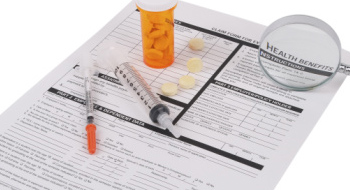
Controlling escalating drug costs means plan sponsors need to do more than just have prior authorization for high-cost drugs and restricted formularies. These programs will help, but it’s a small percentage of the employee population that actually uses the drugs.

The specialty drugs for treating chronic conditions can be miraculously effective, but they come with a high price tag, and plan sponsors are pressured to both cover these drugs and find ways to achieve plan sustainability. At the first-ever Face to Face Drug Plan Management Forum in Vancouver on May 31, participants were encouraged to cross-examine drug plan management strategies for ways to alleviate costs. The half-day event—Changing With the Times: The New Face of Drug Plan Management—attracted more than 130 registrants to the Marriott Pinnacle Downtown.

Drug benefits are the most significant cost component in most employer-sponsored health benefits plans. Drug costs range between 40% and 70% of an organization’s total health benefits costs, and they are set to rise.

In late June 2012, the U.S. Supreme Court upheld the constitutionality of much of The Patient Protection and Affordable Care Act (PPACA), commonly referred to as “Obamacare.”

Small business owners in Nova Scotia will likely be saving money on their prescription drug costs this year.

It may seem too good to be true, but it looks like increases in health benefits plan costs are slowing.

Express Scripts Canada has been granted license to bring its pharmacy benefit management (PBM) service to Manitoba and Saskatchewan.

In the ongoing battle against cancer, the medical community is looking to promising multi-targeted therapies for more effective and enduring treatments, says a report by pharmaceutical industry observer GBI Research.

The lure of better rates, better service, streamlined administration, faster claims reimbursement and a more client focused service platform are the focal points used by carriers to attract employee benefits plan business.

Healthcare management and technology firm ClaimSecure has been acquired by Katz Group, which owns the retail pharmacy chain Rexall.